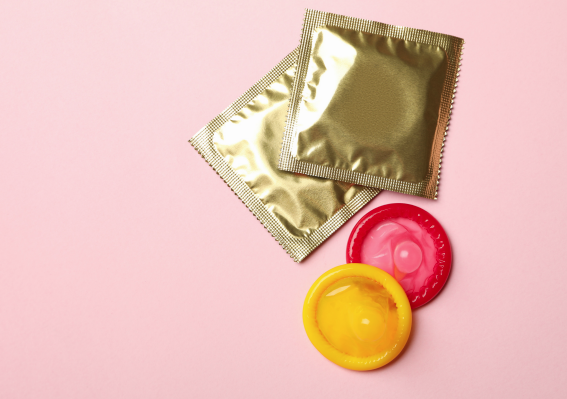As part of our series spotlighting STI’s, this month we’re looking at gonorrhoea.
Sexually transmitted infections (STIs) are an infection that can be passed on between sexual partners during unprotected sexual contact. There are more than 25 STIs which can be spread by vaginal, anal or oral sex.
They are unfortunately common amongst all age groups, which is why it’s important to understand what they are, the symptoms you may experience and how they are treated.
It’s important to start breaking the stigma surrounding STIs by showing that they aren’t something to be embarrassed about and, in most cases, can be very simple and quick to get treated.
So, let’s have a look at what gonorrhoea is and what you need to know about it.
What is Gonorrhoea?
Gonorrhoea is caused by a sneaky bacteria called Neisseria gonorrhoeae and can infect your genitals, throat, or rectum. The most common way to get it is through unprotected sexual contact – that means no condom or dental dam.
Gonorrhoea is easily passed between people through:
- Unprotected vaginal, oral or anal sex.
- Sharing vibrators or other sex toys that have not been washed or covered with a new condom each time they’re used.
What Are the Potential Symptoms?
Gonorrhoea, like chlamydia, is a silent STI. 1 in 10 infected men and almost half of infected women do not experience any symptoms. Here are some signs to watch out for:
- Unusual Discharge: If you notice strange green or yellow discharge from your genitals, that’s a red flag.
- Painful Peeing: A burning sensation when you pee could be a sign.
- Pelvic Discomfort: You might feel pain or discomfort in your lower abdomen.
- Sore Throat: For those who’ve been engaging in oral activities, a sore throat might pop up.
- Uncomfortable rectum: If you’ve been experimenting with anal sex, gonorrhoea could be the cause.
But remember, not everyone experiences these symptoms. That’s why regular check-ups are crucial.
What Tests Can You Take?
If you’ve had unprotected sex with a new partner, it’s recommended you take a STI test. Although this isn’t the case in the UK at present, gonorrhoea is becoming resistant to antibiotics, which is why it is important to be tested and treated. Testing for gonorrhoea is quick and easy and can be done at home with one of our self-testing kits. If you don’t feel comfortable doing this by yourself, or can’t access the online service, you can come into one of our clinics where a sample of discharge can be picked up using a swab. In men, testing a sample of urine can also diagnose the condition. No need to stress; your privacy is a top priority, and it’s all confidential. You can find your nearest clinic here. Even if you have no symptoms, it’s better to do a test at least 2 weeks after the unprotected sex to be reliable.
What Is the Treatment?
So, you’ve tested positive for gonorrhoea – it’s okay! The good news is that gonorrhoea is treatable with antibiotics. Healthcare professionals will prescribe the right medication, and you’ll usually start feeling better in a few days. But here’s the golden rule: finish ALL the medication, even if you start feeling like better. That’s how you ensure gonorrhoea is gone for good.
What Can You Do to Prevent Gonorrhoea?
As with any STI, condoms are the most effective method for reducing the risks of contracting or passing on gonorrhoea.
Condoms are currently the only method of contraception which will prevent sexually transmitted infections (STIs), as well as pregnancy. They work by catching the sperm and avoiding direct genital contact. External condoms are 98% effective whilst internal condoms (femidoms) are 95% effective.
If you would like some free condoms, we can help. Visit our eC-Card scheme to find out more and how you can access free condoms near you.
Here’s how to keep Gonorrhoea at bay:
- Condoms and Dental Dams
- Regular Testing
- Avoiding sharing sex toys unless they are thoroughly cleaned between use
What Support Is Available?
We get it; dealing with STIs can be stressful. But remember, you’re not alone in this journey. The Essex Sexual Health Service is here for you! We offer support, advice, and treatment – all without judgment.
Visit our Online Portal or Contact us on 0300 003 1212 and we’ll help arrange the tests and treatment you need. Alternatively, for more ways to get in touch and find your nearest clinic visit: https://essexsexualhealthservice.org.uk/contact/


